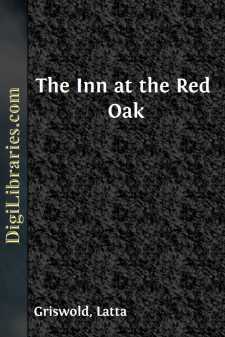Categories
- Antiques & Collectibles 13
- Architecture 36
- Art 48
- Bibles 22
- Biography & Autobiography 813
- Body, Mind & Spirit 142
- Business & Economics 28
- Children's Books 17
- Children's Fiction 14
- Computers 4
- Cooking 94
- Crafts & Hobbies 4
- Drama 346
- Education 46
- Family & Relationships 57
- Fiction 11829
- Games 19
- Gardening 17
- Health & Fitness 34
- History 1377
- House & Home 1
- Humor 147
- Juvenile Fiction 1873
- Juvenile Nonfiction 202
- Language Arts & Disciplines 88
- Law 16
- Literary Collections 686
- Literary Criticism 179
- Mathematics 13
- Medical 41
- Music 40
- Nature 179
- Non-Classifiable 1768
- Performing Arts 7
- Periodicals 1453
- Philosophy 64
- Photography 2
- Poetry 896
- Political Science 203
- Psychology 42
- Reference 154
- Religion 513
- Science 126
- Self-Help 84
- Social Science 81
- Sports & Recreation 34
- Study Aids 3
- Technology & Engineering 59
- Transportation 23
- Travel 463
- True Crime 29
Our website is made possible by displaying online advertisements to our visitors.
Please consider supporting us by disabling your ad blocker.
The Inn at the Red Oak
by: Latta Griswold
Description:
Excerpt
CHAPTER I
THE MARQUIS ARRIVES AT THE INN
By the end of the second decade of the last century Monday Port had passed the height of prosperity as one of the principal depots for the West Indian trade. The shipping was rapidly being transferred to New York and Boston, and the old families of the Port, having made their fortunes, in rum and tobacco as often as not, were either moving away to follow the trade or had acquiesced in the changed conditions and were settling down to enjoy the fruit of their labours. The harbour now was frequently deserted, except for an occasional coastwise trader; the streets began to wear that melancholy aspect of a town whose good days are more a memory than a present reality; and the old stage roads to Coventry and Perth Anhault were no longer the arteries of travel they once had been.
To the east of Monday Port, across Deal Great Water, an estuary of the sea that expanded almost to the dignity of a lake, lay a pleasant rolling wooded country known in Caesarea as Deal. It boasted no village, scarcely a hamlet. Dr. Jeremiah Watson, a famous pedagogue and a graduate of Kingsbridge, had started his modest establishment for "the education of the sons of gentlemen" on Deal Hill; there were half-a-dozen prospering farms, Squire Pembroke's Red Farm and Judge Meath's curiously lonely but beautiful House on the Dunes among them; a little Episcopalian chapel on the shores of the Strathsey river, a group of houses at the cross roads north of Level's Woods, and the Inn at the Red Oak,—and that was all.
In its day this inn had been a famous hostelry, much more popular with travellers than the ill-kept provincial hotels in Monday Port; but now for a long time it had scarcely provided a livelihood for old Mrs. Frost, widow of the famous Peter who for so many years had been its popular host. No one knew when the house had been built; though there was an old corner stone on which local antiquarians professed to decipher the figures "1693," and that year was assigned by tradition as the date of its foundation.
It was a long crazy building, with a great sloping roof, a wide porch running its entire length, and attached to its sides and rear in all sorts of unexpected ways and places were numerous out houses and offices. Behind its high brick chimneys rose the thick growth of Lovel's Woods, crowning the ridge that ran between Beaver Pond and the Strathsey river to the sea. The house faced southwards, and from the cobbled court before it meadow and woodland sloped to the beaches and the long line of sand dunes that straggled out and lost themselves in Strathsey Neck. To the east lay marshes and the dunes and beyond them the Strathsey, two miles wide where its waters met those of the Atlantic; west lay the great curve, known as the Second Beach, the blue surface of Deal Bay, and a line of rocky shore, three miles in length, terminated by Rough Point, near which began the out-lying houses of Monday Port.
The old hostelry took its name from a giant oak which grew at its doorstep just to one side of the maple-lined driveway that led down to the Port Road, a hundred yards or so beyond....


